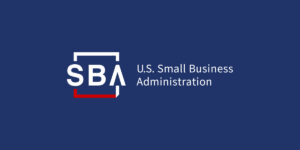<< Back to Media
Federal Government Targets More Small Disadvantaged Businesses Contracts
February 22, 2024
The Department of Defense (DoD) contracts with the private sector, including small businesses and large companies, to supply the U.S. military with equipment, technology, and other resources it needs to carry out its mission. But since 2016, the number of small businesses awarded DoD contracts has declined. Eight years ago, 52,499 small businesses were prime contractors. However, in 2022, only 29,991 small businesses were prime contractors — a 43 percent decrease over six short years. Such a decline can contribute to national security risks and increase defense spending.
An encouraging trend is that the DoD has increased the number and percentage of dollars spent on small businesses (SB) each year. These efforts include annual increases in the number of dollars spent on Small Disadvantaged Businesses (SDB) — businesses owned and controlled by minority entrepreneurs with assets below a certain threshold.

GAO analysis of Federal Procurement Data System data in “Small Business Contracting: Actions Needed to Implement and Monitor DoD’s Small Business Strategy.” GAO Report to Congressional Committees, October 2021.
The increased dollar and percentage of contracts to SDBs will likely lead to an increase in the dwindling size of the SDB vendor pool.
It is impossible to pinpoint the exact cause of the shrinking pool of SDB and SB vendors receiving DoD contracts despite DoD spending more money on them. Still, it is reasonable to conclude that defense sector consolidations, increased cybersecurity requirements, contract bundling, and the uptick in contract vehicles have contributed to the reduction.
There are 175,074 self-certified SDBs registered on Sam.gov to do business with the government. However, the Office of Management and Budget (OMB) has reported that 75 percent of businesses registered do not do business with the government in a given year.
But an Executive Order is reversing that trend.
Presidential Priorities Addresses Barriers
With support from a January 2021 Presidential Executive Order made on President Biden’s first day in office, SDBs should receive more government contracts in 2024 and 2025. To enforce the Biden Administration’s Executive Order 13985, “On Advancing Racial Equality and Support for Underserved Communities,” the Office of Management and Budget (OMB) increased the annual percentage of federal government contract awards dedicated to SDBs:
- 11.4 percent in (FY) 2022
- 12 percent in (FY) 2023
- 13 percent in (FY) 2024
- 15 percent in (FY) 2025
With this steady increase, the Executive order intends to address obstacles and barriers that have historically prevented underserved communities and individuals from competing and winning federal agency awards.
“By advancing equity across the Federal Government, we can create opportunities for the improvement of communities that have been historically underserved, which benefits everyone. For example, an analysis shows that closing racial gaps in wages, housing credit, lending opportunities, and access to higher education would amount to an additional $5 trillion in gross domestic product in the American economy over the next 5 years. The Federal Government’s goal in advancing equity is to provide everyone with the opportunity to reach their full potential.”
Executive Order 13985 of January 20, 2021
Government Initiatives
To support the Executive Order, the U.S. General Services Administration (GSA) has introduced tools to increase the number of SDB businesses receiving contracts. The GSA created a new supplier base dashboard to help agencies keep tabs on the total number of companies they have been contracting with and a procurement equity tool to help government acquisition members find new vendors from different sections of the country.
In addition, the OMB has increased access for SDBs to participate in the 8(a) Business Development Program. The U.S. Small Business Administration (SBA) developed the nine-year program that offers management and financial training and technical assistance to SDBs, strengthening their ability to win government contracts. Other small businesses that can participate in the 8(a) program include:
- Alaska Native corporations

- Community Development Corporations
- Indian tribes
- Native Hawaiian organizations
Increased access to the 8(a) program will help achieve the 13 percent (FY) 2024 SDB contract goal and 15 percent (FY) 2025.
Such government initiatives are crucial for small businesses. They help the federal government find the best SBD contractor for the job through small business solicitations rather than routinely awarding the few larger defense contractors.
Improving Innovation, Reducing Costs
In 2020, 35 percent of Department of Defense (DoD) awards went to five vendors: Lockheed, Raytheon, General Dynamics, Boeing Company, and Northrop Grumman. This decades-long trend of relying on just a few suppliers decreases competition, the cornerstone of sound acquisition practice. When competition decreases, it removes the drive to innovate among firms, threatening an entire industry’s — including the military-industrial base — overall capabilities and supply capacity. For the DoD, a decrease in competition means a risk to national security while increasing costs.
In February 2022, a report from the Department of Defense, State of Competition Within the Defense Industrial Base, emphasized that “When markets are competitive, the Department reaps the benefits through improved cost, schedule, and performance for the products and services needed to support national defense.” As a result, the DoD has recommitted its efforts to support small businesses wanting to do business with the DoD.
Small businesses account for 43 percent of all tech jobs, produce 16.5 times more patents than large firms, generate 44 percent of U.S. economic activity, and account for 62.7 percent of net new jobs from 1995-2021. They excel in their work and can outperform larger companies in creative ways.
That means competition between all vendors — from behemoths to small firms — will deliver best-in-class products and services for the federal government at the best value for taxpayers.
Exceeding Goals
The Biden Administration has worked hard to avoid awarding federal government contracts primarily to the largest vendors. The Administration has prioritized supporting small businesses from underrepresented communities through Executive Orders. In turn, the OMB has directed federal agencies to “expand the number of procurement dollars awarded to small business concerns owned and controlled by socially and economically disadvantaged individuals.” The four primary pillars of OMB’s instructions include:
- Increasing opportunities for small businesses on multiple award contracts.
- Strengthening the quality, timeliness, and access to procurement forecasts.
- Expanding access to federal contracting through innovative acquisition practices that reduce transaction costs.
- Improving practices for small businesses subcontracting — an essential gateway into the federal marketplace.
The efforts are working. In 2021 and 2022, contracts awarded to SDB exceeded goals. The multiple benefits included:
- Shortened acquisition process, resulting in contracts being awarded faster.
- More business owners from underrepresented backgrounds have an opportunity to win government contracts and develop experience in the industry.
- Business leaders from underrepresented communities recognize that success as a government vendor is attainable, increasing proposal submissions.
- A broader array of supplies and services from more vendors improves the quality and value of government acquisitions.
- Larger vendors improve their supplies or services to remain competitive, improving government productivity.
Contact the U.S. Small Business Administration to learn how to become certified as an 8(a) small business or participate in the 8(a) business development program.
How Washington Business Dynamics is Helping
The procurement experts at Washington Business Dynamics (WBD) hold 20-plus years of experience in pre-award and post-award acquisition. WBD examines our federal government clients’ full buying potential to maximize purchasing power by considering more than day-to-day operations. As a proud family company of Chickasaw Nation Industries, we acknowledge how SDB contracting goals are essential for members of the SDB community, government agencies, the broader economy, and U.S. taxpayers. At WBD, our consultants work in conjunction with our clients to meet their SDB award goals.
Author: Luke Bieber is an acquisition professional supporting the Defense Security Cooperation Association (DSCA).
